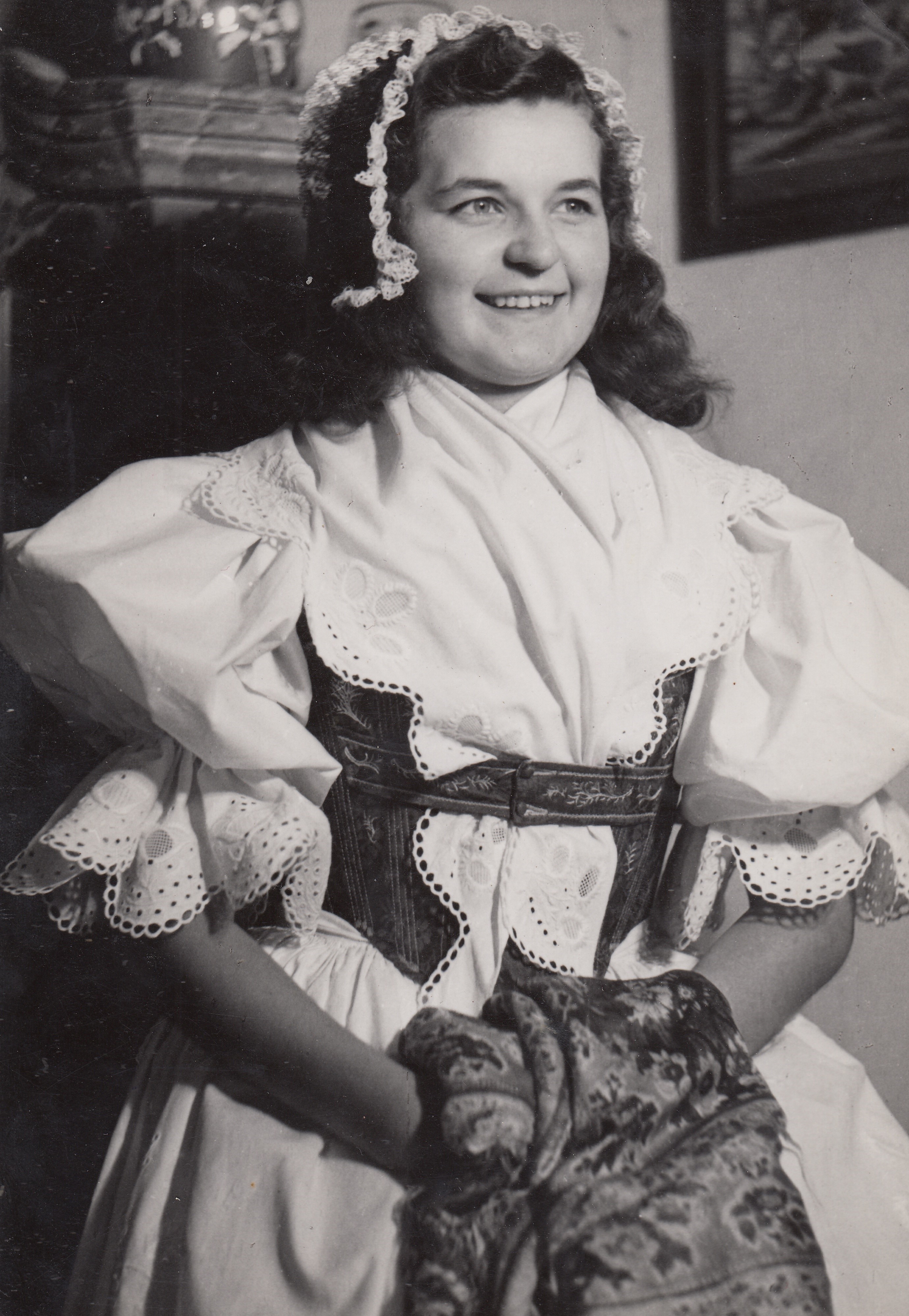Her father‘s business was taken away by the communists, then her illness took her husband and son

Stáhnout obrázek
Eva Rybová, nee. Sahánková, was born on April 6, 1931 in Lomnica nad Popelkou. At the end of the Second World War, she experienced the massacre of German civilians in Smetana Street. Her father, a tradesman, had his butcher‘s shop taken away by the communists in 1948 and the family was considered exploiters. The witness worked all her life as a governess. In 1951 she married her first husband Josef Kuhn. Despite vision problems and subsequent blindness, he took up mountaineering and skiing, and promoted sports for the blind. The couple participated together in skiing championship races for the blind in Western European countries. The director Jan Špáta made a documentary about them called Does the Sun Shine? Josef Kuhn died in 1978, and the witness also lost her son to prolonged cancer. She later remarried, marrying glassmaker Jiří Ryba. In 2023 she lived in Lomnica nad Popelkou. We were able to record her story thanks to the financial support of the town of Lomnice nad Popelkou.





















